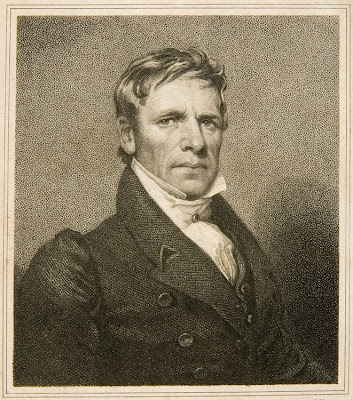"Oh! stay not to recount the tale - 'Twas bloody - and 'tis past, The firmest check might well grow pale To hear it to the last. The God of heaven, who prospers us, Could bid a nation grow. And shield us from the red man's curse Two hundred years ago!" - Grenville Mellen
From the 28th of August, 1801, to the close of the year 1804, the record of the life at Fort Pembina [sic] is a series of complaints, demands, quarrels and casualties, the revolting details of which involve the characters of many brave Indians, who doubtless merit honorable mention, but who appear at best as "troublesome" and many of them as answerable for a long list of crimes, invariably with direct reference to an abnormal state of mind, attributed to over-indulgence on one side and criminal adulteration of the means of it on the other. The record of Alexander Henry, as made up by himself, during five years of the early history of the Red River Valley, is bad enough. Others were working on the same lines. In some of their journals the record is far more shameful than Henry's, and of his Doctor Coues1 says:
"The seamy side of the fur trade Henry shows us with a steady hand that we can scarcely follow with unshaken nerves, is simply hell on earth; people with no soul above a beaver skin, fired by King Alcohol in the workshop of Mammon."
Ingenious excuses were framed by the Indians for obtaining the stimulant which the white traders had encouraged them to use and taught them to prize above all things, and in the dealing out of them of the poison, there was often a nefarious liberality, let alone their questionable forms of trade, for which there can be no condemnation too severe.
Henry in commenting on the degeneracy of the Indians, said: "The Indians totally neglect their ancient ceremonies, and to what can this degeneracy be ascribed but to their intercourse with us; particularly as they are so unfortunate as to have a continual succession of opposition parties to teach them roguery and destroy both mind and body with that pernicious article, rum! What a different set of people they would be, were there not a drop of liquor in the country! If a murder is committed among the Saulteurs (Chippewa), it is always in a drinking match. We may truly say that liquor is the root of all evil in the Northwest. Great bawling and lamentation went on, and I was troubled most of the night for liquor to wash away grief."
The use of intoxicating liquor rouses the passions, among all races of men; it deadens the sensibilities, impairs and frequently destroys the memory. Love in the home of the man who is addicted to its use, his business will fail, his home will be broken, and his parents, his wife, and daughters may expect to go in sorrow to their graves. There is no evil known to man that can or does bring the distress to the human race that follows its unrestrained use.
Perhaps it has been, and may be used to some advantage in medicine and mechanic arts, but there is absolutely no compensation that it has given or can give the world, for the ruin it has wrought in its use as a beverage. A noble race that peopled the plains and forests of North America have been nearly destroyed by its use and the white man's greed for gold, and countless thousands, aye, millions of white men have been unfitted for life's duties, not to speak of the murders and suicides, and of the miserable wrecks in the hospitals for the insane and in the penitentiaries and jails.
The flagstaff for Fort Pembina, a single oak stick, "seventy-five feet without splicing," was erected on November 28, 1801, and at the raising the men were given "two gallons of high wines, four fathoms of tobacco, and some flour and sugar, to make merry." But it was not alone the aborigines who exceeded the bounds of sobriety, for it is written, that on New Year's day the man of the X.Y. Company and the Hudson's Bay Company came over to Fort Pembina, and the manager treated the company assembled to "two gallons of alcohol, five fathoms of tobacco and some flour and sugar, the neighbors and everybody else of both sexes and all classes losing their senses, and according to the narrator, 'becoming more troublesome than double their number of Indians.'"
Good drinking water was scarce on the hunt and in the midst of the winter of 1801-02 (February 28th), Henry returned from hunting almost famished, and declared that "a draught of water was the sweetest beverage he ever drank."
Of the Indian when not degenerated by the use of intoxicants it may be said there is no selfishness in him. His anger and his appetite in those days were uncontrollable, but there is no human love stronger than his for home and kindred, and he seldom forgot to recognize "discretion" as "the better part of valor," and for that he has been called cowardly. No matter what the Indian's prospect for success in battle might be, the moment that he realized that his women and children were in danger he would return. Their protection was his first consideration. Aside from that his creed was a life for a life, a scalp for a scalp. If the Indians traveled a thousand miles, enduring privation and dangers that were appalling, it was for scalps to recompense for similar losses. It was not the love of bloodshed, or for the wanton destruction of human life. It was for revenge, none the less sweet because indulged by the untutored tribesmen.
1 - Dr. Elliott Coues was the appointed surgeon and naturalist for the Northern Boundary Commission...




















